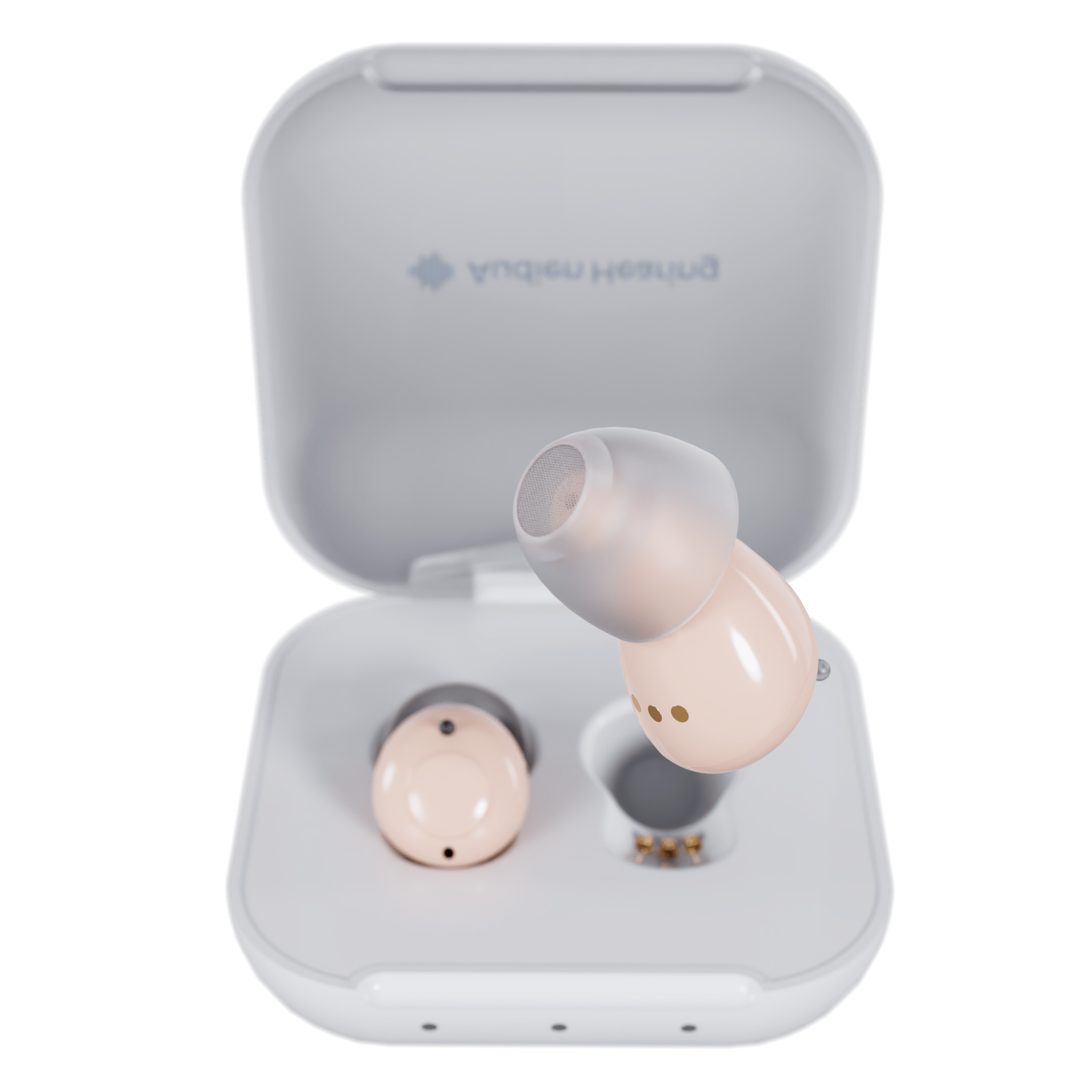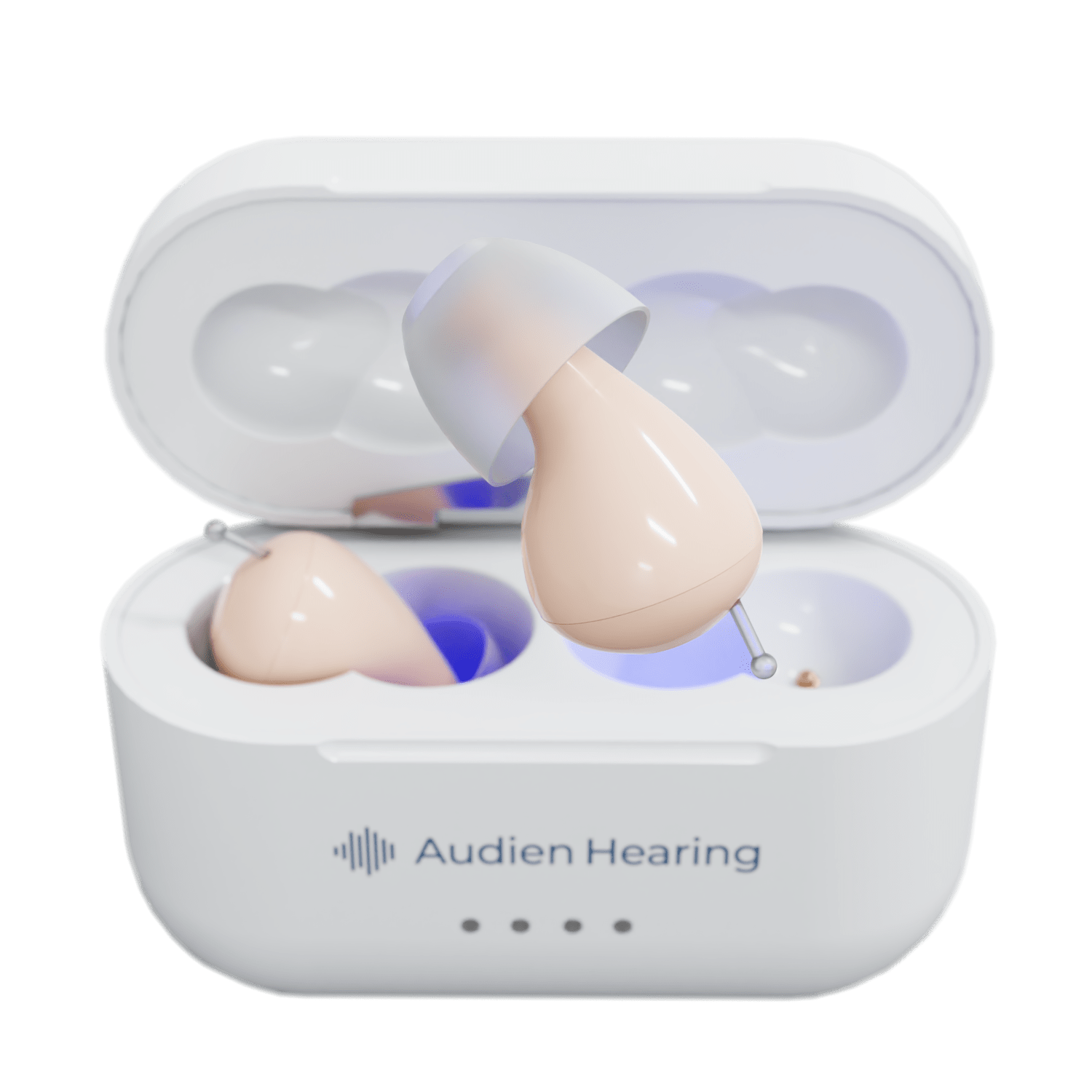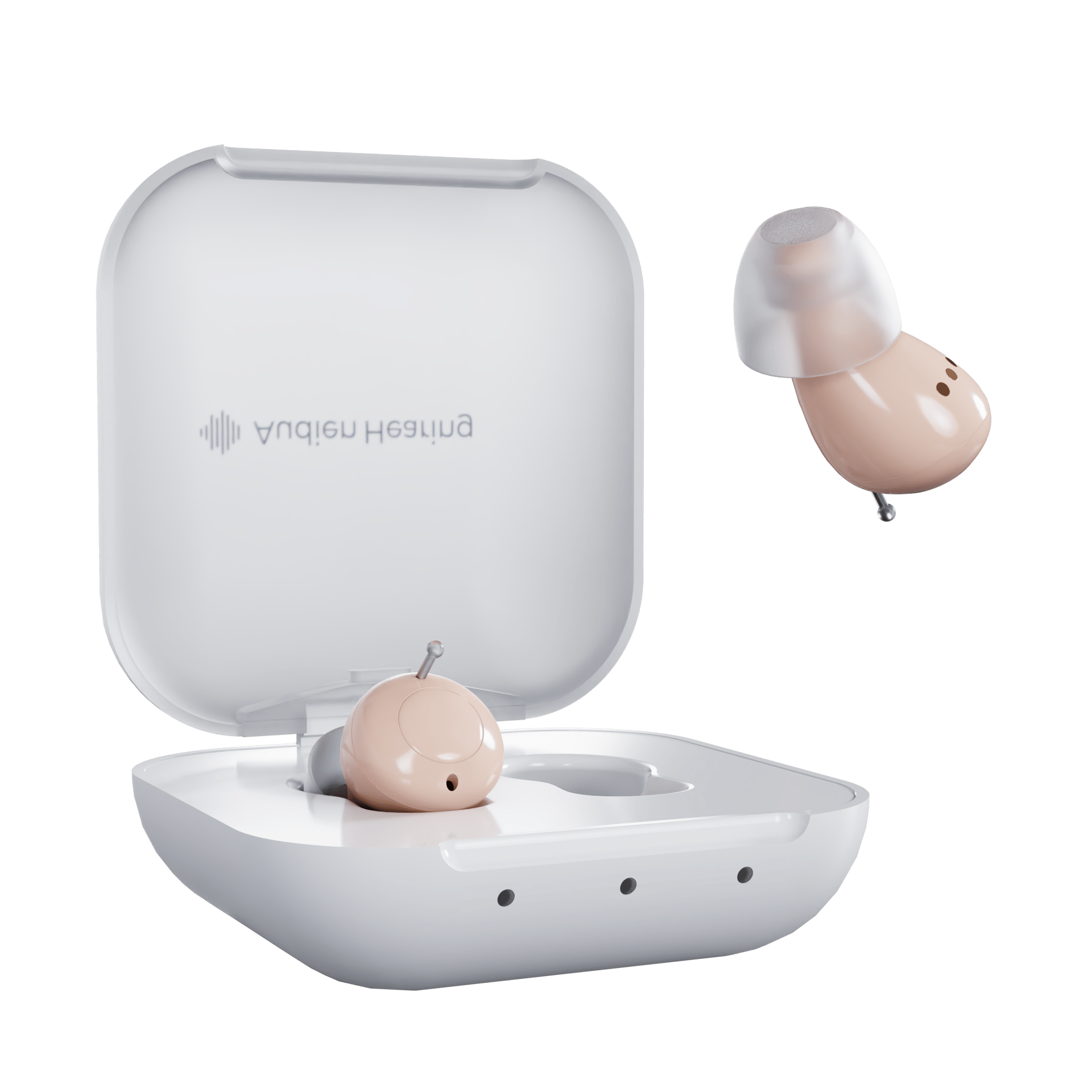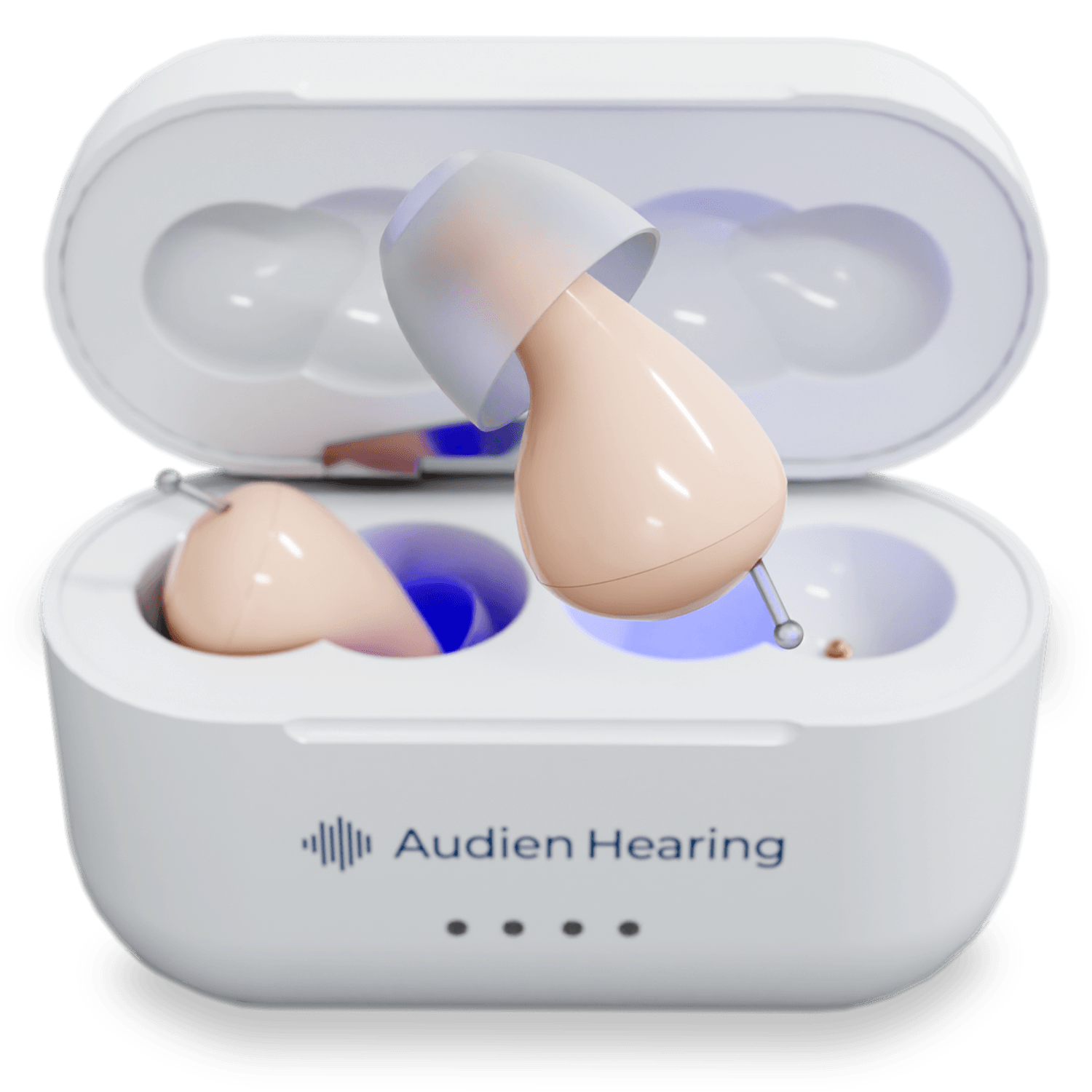
Sensorineural hearing loss is a type of hearing loss that is caused by damage to the auditory nerve and the structures in the inner ear. Both congenital and acquired factors can cause this damage.
While people with sensorineural hearing loss may be able to hear a little, the sound is usually muffled and distorted.
Sensorineural hearing loss can affect one or both ears, and the symptoms can develop gradually or suddenly.
Sensorineural hearing loss that starts suddenly is known as sudden sensorineural hearing loss. Unlike sudden sensorineural hearing loss, regular sensorineural hearing loss symptoms often develop slowly and may not be noticed except you conduct a hearing test.
As sensorineural hearing loss progresses, some of these symptoms become obvious.
Common symptoms of sensorineural hearing loss include:
- Difficulty understanding female and children's voices.
- Difficulty understanding speech being heard.
You may be able to hear what is being said but are unable to understand what is being said. This means that the ear is receiving sound, but the process of translating the sound for understanding is not functioning properly.
- Dizziness.
The organ responsible for balance is also located in the inner ear. Any damage to the inner ear can tamper with your balance, and this can result in dizziness, vertigo, or loss of balance.
- Muffled sounds.
Your ear can pick external sounds, but the sounds are muffled and not clear enough to be understood; this can cause you to ask for repetition constantly.
- Difficulty hearing sounds when there is background noise.
- Difficulty hearing high-pitched sounds. Low pitched sounds are easier to hear when you have sensorineural hearing loss.
- Tinnitus.
This is the hearing of noise in the ear when there is no external source of the noise. The most common manifestation of tinnitus for people with sensorineural hearing loss is a ringing noise.
Sensorineural hearing loss is categorized into three major subgroups depending on the degree of damage done.
The degrees of sensorineural hearing loss are as follows:
-
Mild Sensorineural Hearing Loss:
This is our focus in this post. Sensorineural hearing loss is considered to be mild if the hearing loss is between 26 to 40 decibels.
-
Moderate Sensorineural Hearing Loss:
Any hearing loss between 41 to 55 decibels is referred to as moderate sensorineural hearing loss.
-
Severe Sensorineural Hearing Loss:
This type of hearing loss ranges from 71 decibels and above.
What is Mild Sensorineural Hearing Loss

Mild sensorineural hearing loss is the most common but also the most under-diagnosed degree of hearing loss. The fact that it is called "Mild" doesn't mean that it doesn't have any effect on people diagnosed with it.
People with mild hearing loss are unable to hear sounds that are louder than 40 decibels and lower than 25 decibels. Children with mild sensorineural hearing loss can't hear sounds quieter than 15 decibels.
Examples of sounds within this decibel are feet shuffling, whispered speech, dropping water, birds chirping, quiet conversations, and leaves rustling.
People with mild sensorineural hearing loss may be able to communicate in quiet, one-on-one settings. Still, when they are in a noisy environment, they may be unable to have conversations or hear softer environmental sounds. They also experience difficulty in understanding speech spoken at a distance, in large groups, or over the phone.
Because of how subtle mild sensorineural hearing loss may appear at the beginning, most people may not be able to quickly figure out that they have a problem with their hearing. They may attribute the lack of hearing to the background noise or low speech volume.
People with mild sensorineural hearing loss can also hear when people are talking loudly, but in some cases, they may feel like their ears are plugged or the speaker is mumbling.
Difficulty in hearing and comprehending speech is experienced when there are competing sound signals like noise and speech at the same time. Hearing speech from women and children and very high-pitched sounds like higher-pitched alarms may also be difficult.
Effects of Mild Sensorineural Hearing Loss on Communication

Even though it is termed "mild," people with mild sensorineural hearing loss still experience difficulty in communicating with others around them.
They usually do not have any difficulty understanding speech when the speaker is very close to them or when the environment is quiet. But since these are not factors that can be influenced by hearing loss patients, they may experience communication difficulties at certain times.
What this means is that if you have mild sensorineural hearing loss, you may not be able always to keep the environment quiet when you are being talked to, especially in public places. You may also not be able to pull the speaker close to yourself when he is talking, especially if you are not the only one being addressed. Your inability to control the speaker and the environment can cause mild sensorineural hearing loss to become more evident.
Due to the varying circumstances under which people with mild sensorineural hearing loss can hear, some of them have been accused by people around them of only hearing when they want to hear. They often insinuate that the hearing loss patient is ignoring them or feigning comprehension difficulty.
Asides from being unable to hear distant speech, people with mild sensorineural hearing loss also find it hard to understand words with consonant sounds. Consonant doubts like "S,” "K,” "F,” "Sh,” and "Th" may be hard to understand.
This is because these consonant sounds are softer to hear than other stringer consonant sounds. So even if the speech is loud enough to be heard, it may still be unclear.
In most cases, the hearing loss patient may hear the word but will have difficulty clearly distinguishing it from similar words. For instance, the word "shirt" may be heard as "hurt" and "sun" as "fun.”
Due to the difficulty of hearing and understanding certain words, people with sensorineural hearing loss often find themselves listening more carefully and putting in more effort to understand what is being said.
This causes them to expend more energy which can lead to fatigue. The fatigue can make them unable to hold conversations for an extended period.
Children with mild sensorineural hearing loss often experience more difficulties than adults. This is because children usually require a louder speech sound than adults when there is background noise. They also don't have a large vocabulary or coping experience to draw on.
Depending on the noise level at school, children with mild sensorineural hearing loss can miss about twenty to forty percent of speech and about half of the classroom discussions. This can result in academic difficulties.
All the problems associated with mild sensorineural hearing loss can affect the communication of the hearing loss patient. With time this difficulty with communication can cause problems with social interactions, interpersonal relationships, and work or career.
Causes of Mild Sensorineural Hearing Loss
The causes of mild sensorineural hearing loss can either be congenital or acquired. Congenital causes are factors that cause sensorineural hearing loss before birth, while acquired causes are factors that cause hearing loss later in life.
The major cause of sensorineural hearing loss is damage to the inner ear. The inner ear contains a spiraling organ known as the cochlea. The cochlea contains tiny hair cells known as stereocilia.
The hair cells’ primary assignment is the conversion of sound waves received from the middle ear into neural signals that are transmitted to the brain through the auditory nerve. It is the neural signals sent to the brain that the brain interprets into a sound that can be comprehended.
Hair cells in the inner ear can be damaged. When this damage occurs, they are no longer able to transmit the right signals to the brain. So even though the outer and middle ears are receiving sound and sending it to the inner ear, the sound cannot be understood because it is not transmitted correctly to the brain.
A lot of factors can damage hair cells, but prominent amongst them is exposure to loud sounds. Exposure to sounds louder than 85 decibels can damage the hair cells and result in hearing loss.
In most cases, hearing loss does not occur until about thirty to fifty percent of the inner ear’s hair cells are damaged.
In some cases, the hair cells are not damaged; they are just bent over.
You may still experience some degree of hearing difficulties, including tinnitus, when this happens. But when they are straightened, the hearing difficulty will disappear.
If, however, the hair cells are damaged, there is nothing that can be done. This is because inner ear hair cells cannot be repaired or regenerated, neither do they regrow. Any damage to them is permanent; this means that any hearing loss caused by damage to hair cells is permanent.
Having identified the major cause of mild sensorineural hearing loss as damage to inner hair cells, let's examine some causes of inner hair cells and auditory nerve damage. These can also be classified as causes of mild sensorineural hearing loss.
1. Congenital Factors

As already stated, mild sensorineural hearing loss can be developed before birth. Congenital mild sensorineural hearing loss is a type of hearing loss that is present at birth. Studies have shown that hearing loss is one of the most common birth abnormalities.
Common causes of mild sensorineural hearing loss at birth are infections such as herpes or rubella, jaundice, preeclampsia, birth injuries, low birth weight, simplex virus, use of drugs or alcohol during pregnancy, premature birth, lack of oxygen and genetics or Rh factor problems.
In most cases, mild sensorineural hearing loss caused by congenital factors is permanent. The use of hearing aids can, however, assist the child in hearing.
2. Loud Noise
There is a limit to the volume of noise your ears can tolerate. Exposing your ears to sounds that are higher than 85 decibels can damage the hair cells in your ear and cause sensorineural hearing loss.
Exposure to loud noise from industrial tools and equipment, firearms, guns, grenades, bombs, and explosives can damage your ears.
Also, listening to very loud music with headphones or exposing your ears to the loud noise in bars, clubs, and concerts can damage your ears.
Both sudden and extended exposure to loud noise can have the same effect on your hearing. Protecting your ears when engaging in activities that involve loud noise can prevent your hair cells from getting damaged.
3. Aging
Hearing loss caused by aging is known as presbycusis. As you age, different parts and organs of your body begin to deteriorate or wear out. The hair cells in your inner ear also begin to deteriorate. This can cause mild sensorineural hearing loss.
Aside from the natural aging of the hair cells, the deterioration can also result from all the years you exposed your ears to varying degrees of loud noise.
Mild sensorineural hearing loss caused by aging is not curable. In most cases, it degenerates into severe hearing loss. With the right medical help and hearing aids, you may, however, be able to still function properly.
4. Ear Diseases and Infections
Ear infections, especially those accompanied by earache, fever, and discharge, can cause mild sensorineural hearing loss in both adults and children. If left untreated for an extended period, ear infections can cause permanent hearing loss or deafness.
Also, autoimmune inner ear diseases can cause hearing loss. Autoimmune inner ear diseases occur when the body's immune system begins to attack the inner ear’s structures.
The major focus of this attack is the hair cells in the inner ear. With prompt medical attention, you may be able to save some hair cells, but if treatment is delayed, all the hair cells can get damaged, resulting in permanent hearing loss.
5. Other Causes
Other factors like otosclerosis or bone abnormalities in the middle ear can also cause mild sensorineural hearing loss.
Acoustic neuroma, Meniere's disease, earwax blockage, and head trauma can also cause mild sensorineural hearing loss.
Treatment of Mild Sensorineural Hearing Loss
Presently, there is no surgical procedure for treating mild sensorineural hearing loss. The most common treatment options for mild sensorineural hearing loss are the use of hearing aids and cochlear implants.
1. Hearing Aids

Hearing aids are devices designed to improve the hearing of people with hearing loss by making sound audible to them.
Hearing aids are classified as medical devices in most countries, and they can only be prescribed by an ENT doctor and fitted by an audiologist.
Hearing aids are fitted to meet the specific hearing needs of the hearing loss patient. For instance, if you have difficulties hearing high-frequency sounds, an audiologist will fit your hearing aid to dial in these sounds without affecting other frequencies.
There are different types of hearing aids. Some can be fit behind the outer ear, while others are fit in the ear canal.
2. Cochlear Implants
A cochlear implant is a small electronic device that is designed to stimulate the cochlear nerve, which is responsible for hearing. Cochlear implants are surgically designed to help people with various forms of sensorineural hearing loss.
A cochlear implant has two parts: the eternal parts and the internal parts.
The external part of the implant is fitted behind the ear, and it has a microphone that picks up sounds from the environment and transmits them to the internal part of the implant.
A receiver in the implant’s internal part receives the microphone’s sound and sends electrical information to the auditory nerve.
Just like hearing aids, cochlear implants are recommended and fitted by trained audiologists after the proper tests have been carried out.
Mild Sensorineural Hearing Loss Prevention
The only type of mild sensorineural hearing loss that can be prevented is noise-induced sensorineural hearing loss. This is the type of sensorineural hearing loss caused by noise. Asides from this cause of hearing loss, other factors that cause hearing loss can be beyond your control.
The best way to prevent mild sensorineural hearing loss caused by noise is to ensure that you keep your ears safe by wearing protective devices when being exposed to loud noise.
You should avoid any form of exposure to loud noise as much as possible. In cases where the source of noise is unavoidable, probably because it is in your workplace, always wear protective devices.
Below are certain devices that you can wear to protect your ears from loud noise:
- Foam Earplugs
These are available in most drug stores and are accessible to everybody.
- Filtered Earplugs
These earplugs are ideal for music lovers or musicians who are constantly attending musical events like concerts. These earplugs protect your ears from loud noise without affecting the quality of the sound or music.
- In-ear Monitors
These are custom-made devices for musicians. They protect the ears by regulating the amount of sound the user hears from each instrument and person in the band. They can be used during rehearsals and live performances.
- Percussive filters
These devices are custom-molded for hunters. They are designed to block out the loud sound of gunshots during hunting. Hunters can still engage in normal conversations when wearing these filters.
Conclusion
Even though most of the causes of mild sensorineural hearing loss cannot be prevented, you can still save your ears by seeking prompt medical attention immediately if you notice any hearing problems.
The importance of prompt medical attention to hearing problems cannot be overemphasized. If mild sensorineural hearing loss is left untreated for a long time, it can degenerate and result in total or profound hearing loss.
Do you have mild sensorineural hearing loss? What treatment option are you using? We would love to hear from you.













